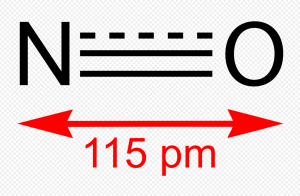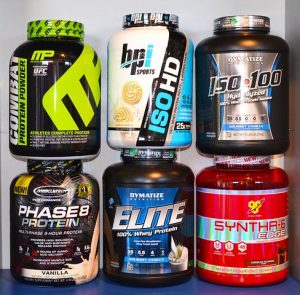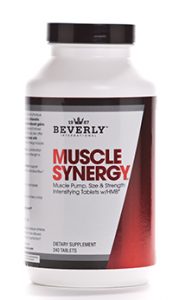Most people don’t worry about nutritional supplements beyond a multivitamin or maybe some protein, thinking that the only ones who really need the “extras” are bodybuilders and other athletes. Take nitric oxide, for example. Known as “NO” in the gym and competitive sports circles, it’s not a supplement that soccer moms or senior citizens reach for or even think of when they want to lose a few pounds or improve their health and fitness. While it’s true that bodybuilders love what nitric oxide can do for them, including encouraging recovery after a workout, improving endurance, enhancing efficient energy use, and creating an awesome muscle pump, according to Bodybuilding.com, NO offers essential health benefits for everyone.
Overall Health Benefits

Studies have shown that NO supplements can help with weight loss by supporting the use of glucose more efficiently during exercise AND encouraging the use of body fat for fuel after clearing out the glucose.
One of nitric oxide’s jobs is to keep the lines of communication open between your body’s cells. NO plays an important role in regulating organs including the liver and kidneys as well as the lungs, brain, and stomach. It helps control adrenaline and hormones and is key in facilitating blood flow. According to “Healing Hormones” by Mark Estren and Beverly Potter, NO accomplishes this by widening blood vessels. The resulting increased blood flow improves heart health and prevents stroke and oxygen starvation. Nitric oxide is even helpful for supporting your immune system and fighting infection, warding off cancer, and protects against neurodegenerative conditions including dementia.
Even weight loss can be enhanced by NO. A study published in the American Journal of Physiology found that a nitric oxide supplement not only improved the efficiency of the subjects’ use of glucose, increasing the rate of appearance, disappearance, and clearance, but it also encouraged the use of body fat as fuel.
NO Such Thing
So here’s the weird part: there isn’t a nitric oxide supplement that contains nitric oxide. NO is actually a gas that the body produces naturally under ideal circumstances by breaking down protein, specifically L-arginine. Nitric oxide supplements are actually ones that contain amino acids and antioxidants, like Beverly International’s Muscle Synergy. Processing L-arginine and L-citrulline encourages your body to manufacture NO, and the antioxidants help control nitric oxide degradation that can cause inflammation and damage cell lining.
Should You Supplement?

Not enough NO can cause vascular disorders which can, in turn, make it harder for your body to produce nitric oxide. Image via YinY/Wikipedia/Public Domain
Even though nitric oxide is produced by the body and is important for numerous functions, you still may wonder if it’s necessary for the average person to take supplements to enhance NO production. It should be noted that taking too many amino acids does have unpleasant side effects including weakness, nausea, and diarrhea. However, serious health issues can arise if you allow your body to fall into a nitric oxide deficiency. According to wellness expert Dr. Whitaker, people who don’t produce enough NO are at risk for vascular disorders including heart disease and high blood pressure. Plus, once cardiovascular disease damages arteries, they become incapable of generating high enough levels of nitric oxide to facilitate cell regeneration. That creates an environment for additional damage to vascular tissue and increased risk of escalating heart disease. It’s a vicious circle.
So, long story short, boosting NO in your system without going overboard is the logical choice.
Doing it Naturally

You don’t have to wait for Thanksgiving to be thankful for white meat turkey–it contains L-arginine to up the NO levels in your body.
If you’re not the type to load up on supplements, there are natural ways you can encourage your body to produce more nitric oxide. The obvious first choice is to eat meat rich in arginine such as shrimp, crab, and white turkey meat. Other foods that contain the right amino acids for NO production are beets, onions, grapes, sesame seeds, and leafy greens including spinach and kale. The Muscles Zone says that Hawthorne extract encourages nitric oxide secretion in the endothelial cells, and points out that exercise also causes your body to release NO into your system.



It’s actually a nice and helpful piece of info. Please keep us up to date like this. Thanks for sharing.
Pingback: Indulge to Improve Your Workout | Targitfit Blog